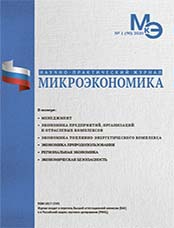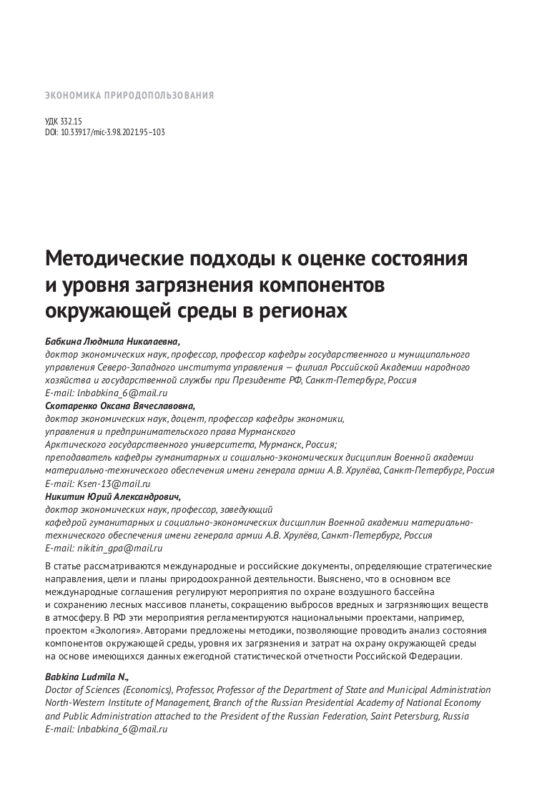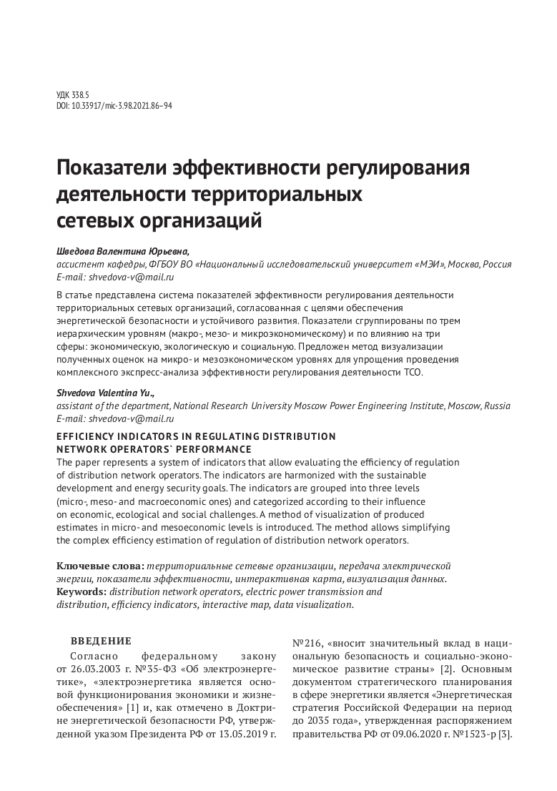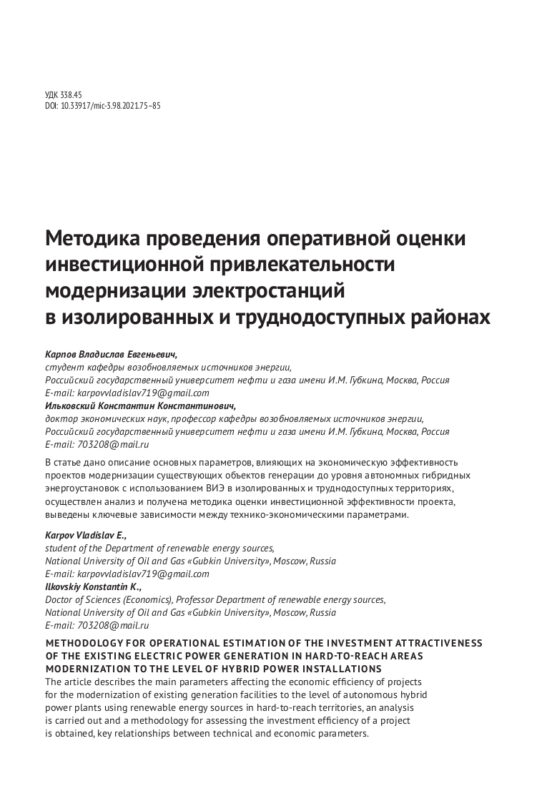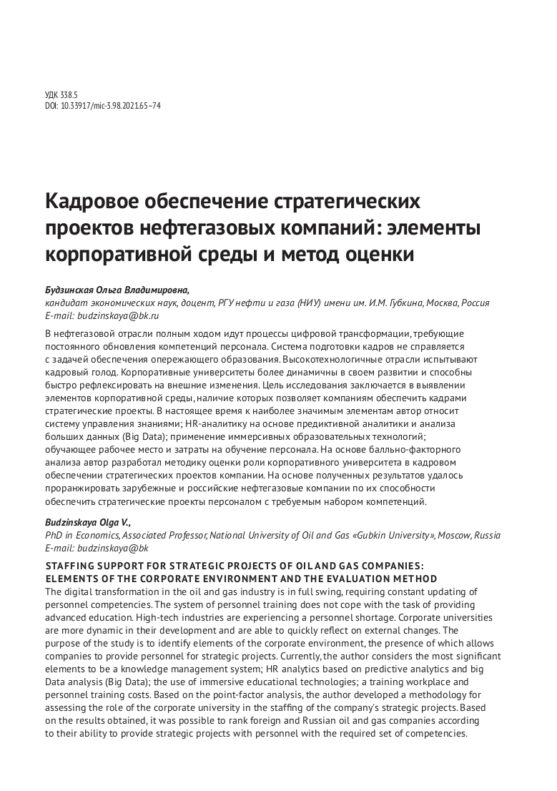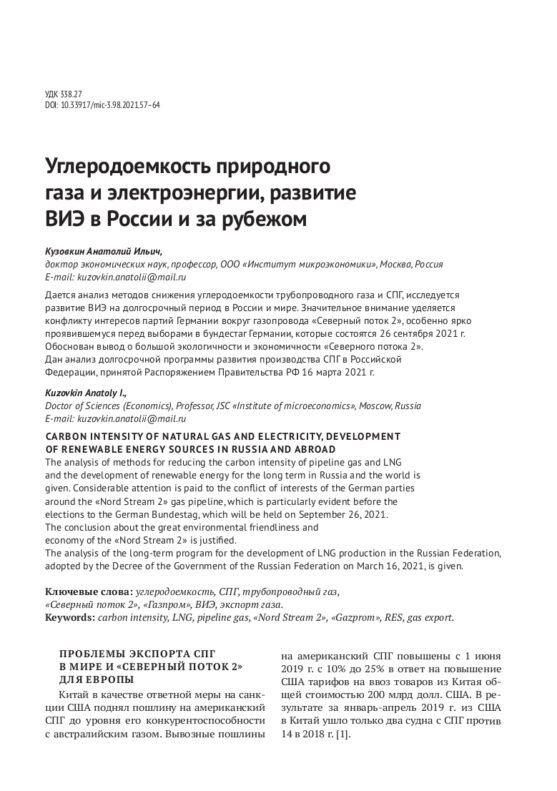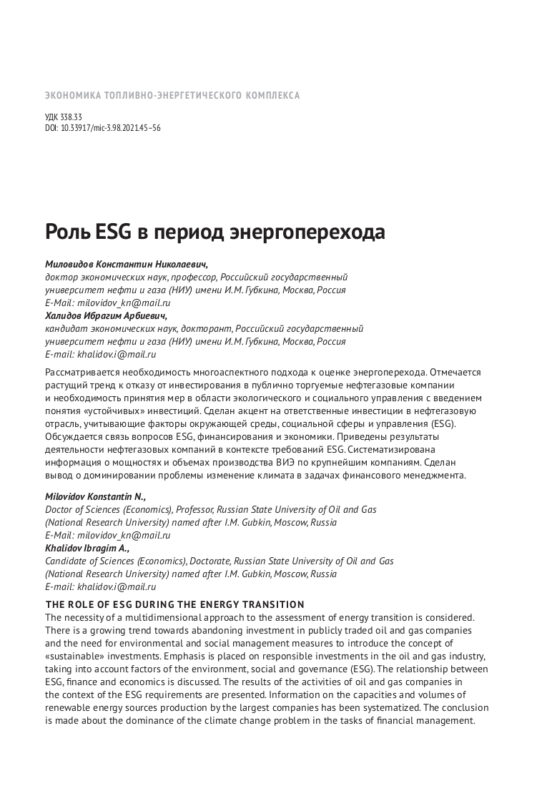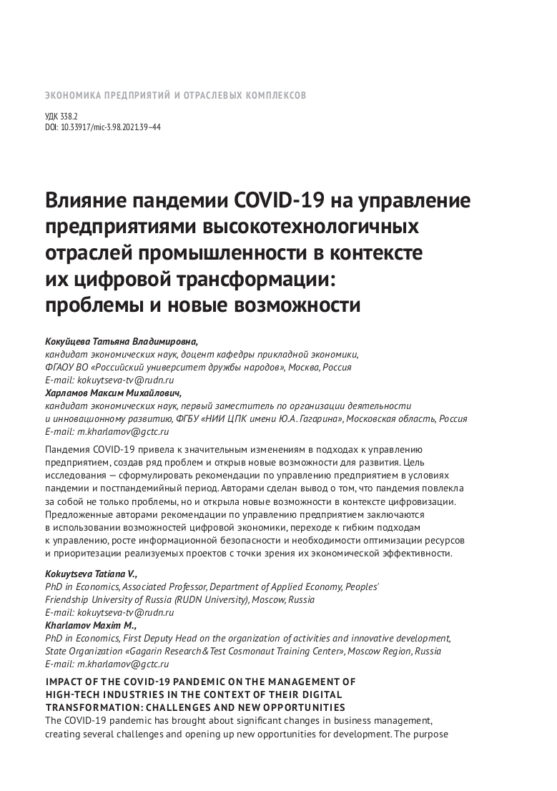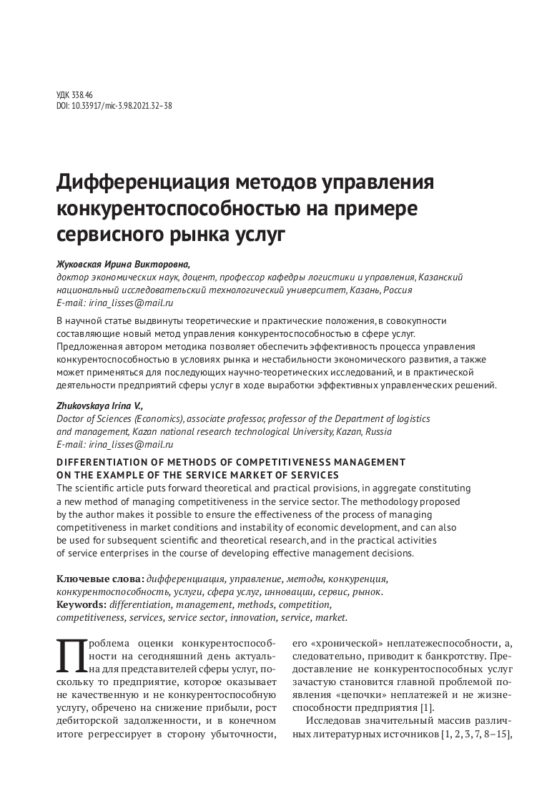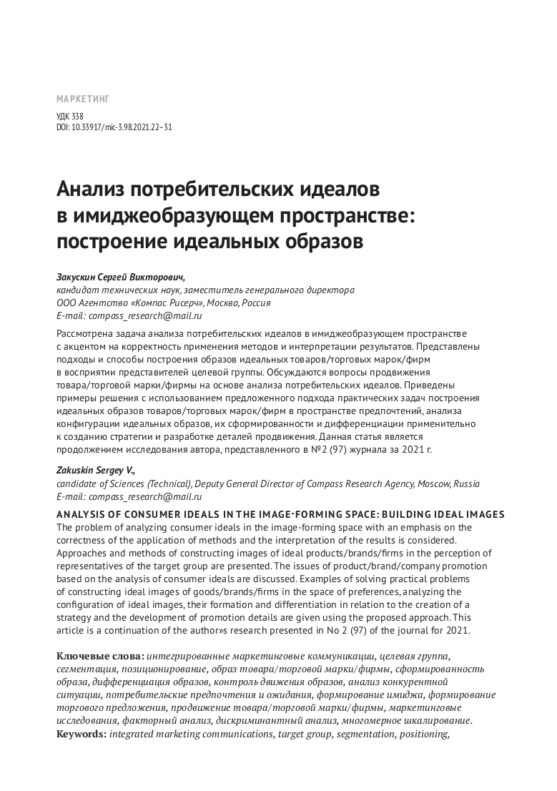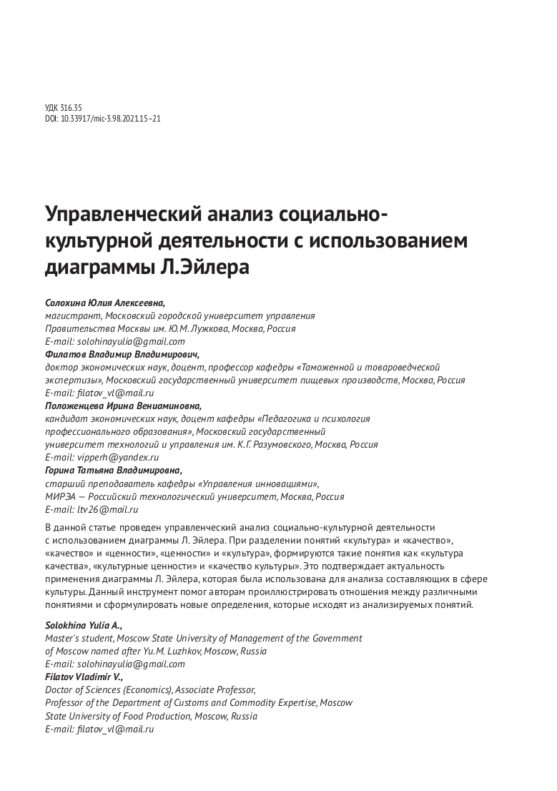Methodological approaches to the assessment of the state and level of pollution of environmental components in the regions
DOI: 10.33917/mic-3.98.2021.95-103
The article deals with international and Russian documents defining strategic directions, goals and plans of environmental protection activities. It was found out that basically all international agreements regulate measures to protect the air basin and preserve the forests of the planet, reduce emissions of harmful and polluting substances into the atmosphere. In the Russian Federation, these activities are regulated by national projects, for example, the Ecology project. The authors propose methods that allow analyzing the state of environmental components, the level of their pollution and the costs of environmental protection on the basis of available data from the annual statistical reports of the Russian Federation.


